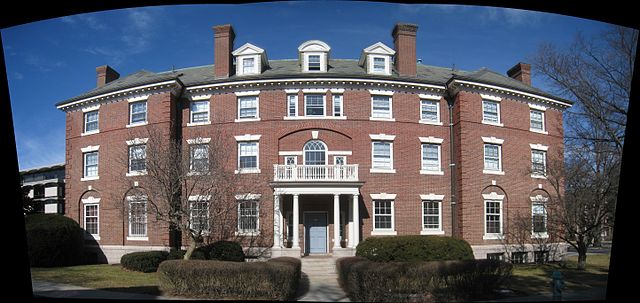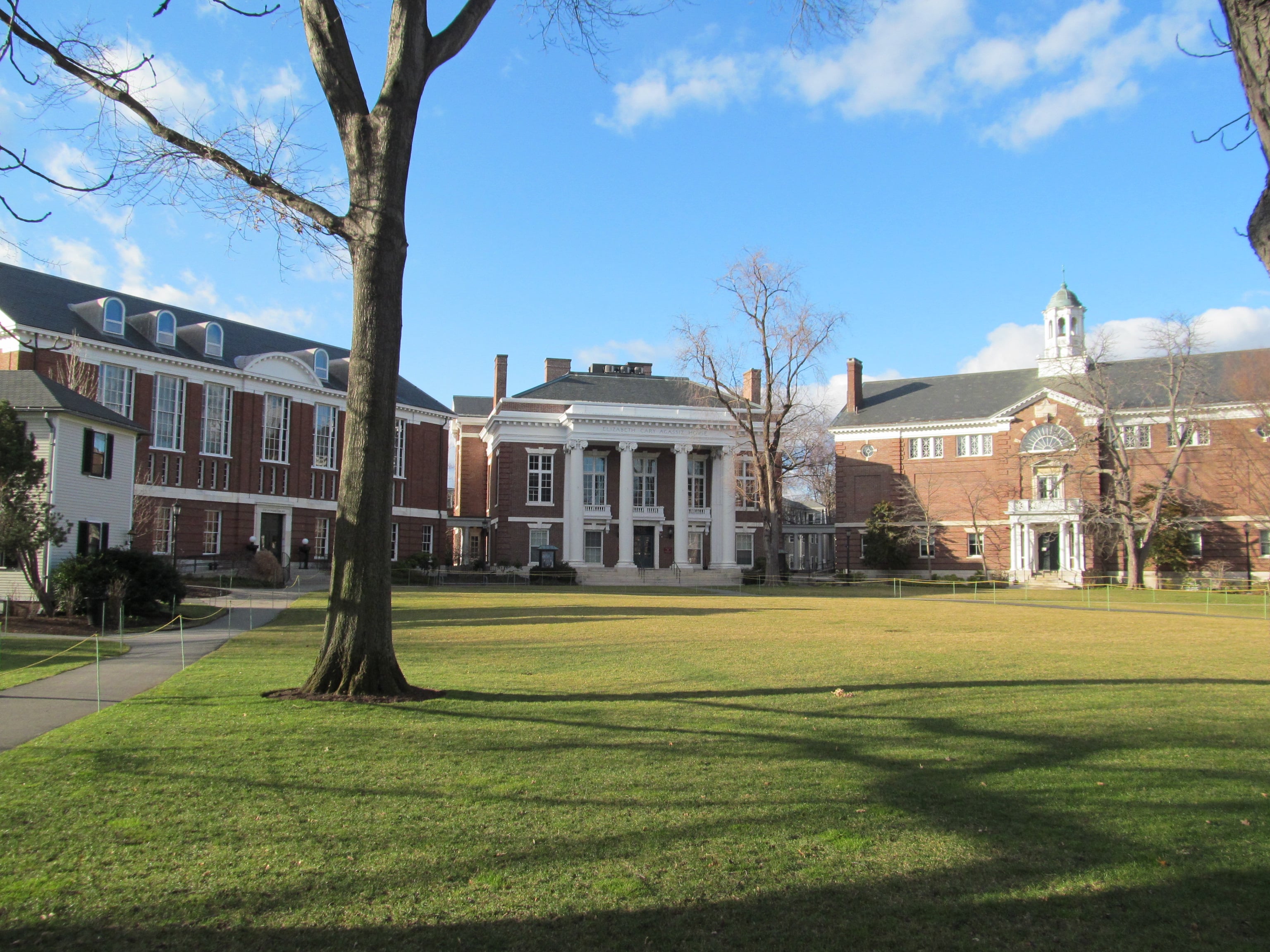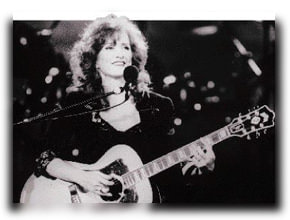First Raitt Medalist

In the spring of 1970, when outraged demonstrators roiled Harvard Square protesting the bombing of Cambodia, Bonnie Raitt ’72 was in the thick of it. “The police chased me into the Hayes-Bickford [cafeteria],” she recalls. “I pretended I was drinking a cup of coffee.” At the time Raitt was a concentrator in Afro-American studies, as well as, in her words, “a Quaker, an activist, and a burgeoning feminist.” One thing that attracted her to Harvard, she says, was that Cambridge was “an unbelievable hotbed of political activity,” as well as a center of intellectual life, folk music, and blues.
A quarter-century later, these themes retain their vitality for Raitt. But her music is the key reason for her return to Cambridge this spring on Arts First weekend (see the Harvard Calendar) as the third recipient of the Harvard Arts Medal. (Her predecessors were Jack Lemmon ’47 in 1995 and Pete Seeger ’40 last year.) “I was pretty amazed,” she says of the honor. “I didn’t even graduate!”
Well, neither did Seeger, but like him, Raitt has enjoyed an illustrious career with a fretboard beneath her fingers. She has released 13 albums since her 1971 debut record, Bonnie Raitt. Her most recent CD is her first live album, Road Tested. In between, she has earned eight Grammy Awards and megastardom. Not bad for someone who originally took a leave from college to play small gigs in the Northeast and open shows for performers like James Taylor and Cat Stevens. “All I wanted to do was be an opening act,” she recalls, adding that she was surprised when “out of the blue,” Warner Brothers offered her a recording contract.
As a high-school senior Raitt applied to Radcliffe not only for the attractions mentioned above, but for the freedoms offered students–“not to mention the four to one ratio of guys to women–which was not lost on me,” she chuckles. She lived in Bertram Hall and frequented the Club 47 in Harvard Square, where singers Joan Baez, Bob Dylan, and Tom Rush had built their careers. She also began “an ongoing love affair with the intellect, music, and politics of Cambridge.”
Raitt embodies some of her own political ideas in enterprises like the Rhythm & Blues Foundation, which is working to reform the royalty structure of recording contracts and to help some of the blues, soul, R & B, and rock legends who flourished before 1970. “The music industry did not take care of its own,” she says, noting that many earlier artists received neither royalties nor health insurance, and wound up with nothing in the bank after selling millions of records. Raitt has also launched, in collaboration with Fender Musical Instruments Corporation, a music-education project to teach children from disadvantaged backgrounds to play the guitar and other instruments. Royalties from sales of her “signature series” guitar help fund the initiative, which now operates through Boys & Girls Clubs in 79 different cities.
Raitt herself picked up the guitar as a youngster, getting into blues at 14 and thus pursuing a different musical tack from her father, Broadway performer John Raitt. Her shows and recordings deftly blend a country blues sensibility with original and contemporary compositions. Raitt’s feeling for the blues has not diminished since she quit drinking and drugs a decade ago. “You can feel plenty bad without a hangover,” she explains. “You don’t have to be poor and black to sing the blues–and you don’t have to be drunk and white, either.”
After three decades in the limelight, Raitt retains both her down-to-earth priorities and her sense of humor. “I’m still meaning to come back to Harvard and finish that degree,” she asserts, tongue firmly wedged in cheek. ” ‘Cause I know, without that sheepskin, I’ll never get anywhere.”
~Craig Lambert
The Harvard University Gazette

Singer, songwriter, pacifist/activist, and eight-time Grammy winner Bonnie Raitt, Radcliffe Class of 1972, will receive the Harvard Arts Medal, according to Winifred White Neisser ’74, member of the Harvard Board of Overseers. The award will be presented to Raitt on May 3 in Cambridge, as part of ARTS FIRST ’97, the fifth annual celebration of the arts at Harvard and Radcliffe.
The Harvard Arts Medal was created to honor a distinguished Harvard or Radcliffe alum or faculty member who has achieved excellence in the arts and who has made a special contribution to the public good or to education, broadly defined. In 1995, actor Jack Lemmon ’47 received the first Harvard Arts Medal, and in 1996, Pete Seeger ’40 was the honored recipient.
Bonnie Raitt was born in Los Angeles on election day in 1949, the daughter of the celebrated Broadway star, singer/actor John Raitt (Oklahoma and Carousel.) A popular and successful vocalist for over 25 years, Raitt performs music that includes blues, rock, folk, and rhythm-and-blues songs. She started playing the guitar at age 12, inspired by the music of traditional Mississippi blues guitarists.
Bonnie Raitt entered Radcliffe College in 1967, but left after two years to start her celebrated musical career. In the early 1970s she emerged as a unique folk and blues singer playing clubs throughout the Northeast. With her debut album, Bonnie Raitt, released in 1971, she established what would be her trademark, a deft blending of country blues sensibility with original and contemporary compositions, and varied blues guitar styles. Since then, she has played hundreds of concerts, recorded 14 solo albums and upwards of 50 recordings with other artists. Her most recent album is Road Tested, released in 1995.

In the spring of 1970, when outraged demonstrators roiled Harvard Square protesting the bombing of Cambodia, Bonnie Raitt ’72 was in the thick of it. “The police chased me into the Hayes-Bickford [cafeteria],” she recalls. “I pretended I was drinking a cup of coffee.” At the time Raitt was a concentrator in Afro-American studies, as well as, in her words, “a Quaker, an activist, and a burgeoning feminist.” One thing that attracted her to Harvard, she says, was that Cambridge was “an unbelievable hotbed of political activity,” as well as a center of intellectual life, folk music, and blues.
In addition to an outstanding singing career, Raitt has long been a committed social activist. She has devoted considerable time, energy, and financial resources to a variety of causes: human rights, anti-nuclear, pro-choice, and the environment. She is also a passionate crusader for the Rhythm & Blues Foundation, dedicated to boosting the income and visibility of aging and ailing R&B veterans. As vice-chair of the Foundation, Raitt has been active in organizing fundraising concerts and events both to raise money for the R&B pioneers, and also to support the historic and cultural preservation of rhythm and blues music. She also cofounded MUSE (Musicians United for Safe Energy), a group dedicated to the anti-nuclear movement, and has been an active supporter through benefit concerts for this group, as well as Farm Aid, Amnesty International, and the anti-apartheid movement.
In her 20th Reunion Class Report she wrote to her classmates: “I’ve spent the last 20 years having the great good fortune of getting paid to play music I love and raise funds for various causes I believe in. No sign of having to get a job yet.”
In 1986, she contributed her services to Harvard University for its 350th celebration by giving a free concert to a large crowd in Harvard Yard.
Raitt lives in Los Angeles and is married to actor/poet Michael O’Keefe.
Raitt will be at Harvard May 2 and 3 during the ARTS FIRST ’97 festival.
Raitt Not Always a Model

May 5, 1997
AWARD
The sassy singer has become a multiple Grammy winner and a leading social activist.
At first Bonnie Raitt was stunned when she received the news that she would receive this year’s Harvard Arts Medal, honoring a Harvard or Radcliffe graduate who has made an outstanding contribution to the arts.
“‘What’s that about ?'” Raitt recalls thinking when she got the phone call.
“It’s not that Harvard needs help with their endowment.But then I realized that sometimes it is important to accept that you’re a role model…so I’m pretty excited about getting it.”
Raitt, a 1972 graduate of the Cambridge, Mass.college, wasn’t always a role model. In those days, she once was the fire captain of her then female-only dormitory and called a fire-drill in the middle of the night, flushing out a number of men who had sneaked in. “There was a bunch of naked guys standing out with blankets on the fire escape. You know they were illegally in the rooms and were out there freezing,” says Raitt. “That’s one of my great memories.”
The sassy Raitt has since become a multiple Grammy winner and a leading social activist. And,while she’s proud to receive the Harvard medal, she’s retaining a sense of humor about it.
“I can’t even believe this is happening!” she says. “But I guess I’ll believe it when I go to the president’s luncheon or something. I can’t believe I’m getting away with it.”
Raitt is only the third recipient of the award, which is now given annually. The first went to folk singer Pete Seeger (class of 1940), the second to actor Jack Lemmon (class of 1947).
Raitt, of course, has more serious memories of her Radcliffe days than just fire-drill antics. The late ’60s and early ’70s forged the social consciousness for which she’s better known. “It was a real fertile time to be in Cambridge,” she says. “I have incredible memories of that era because of all the passions involved–the feminism that came on the heels of the race riots and primarily the (Vietnam) war that galvanized people.
“Today is a more cynical time. It’s harder to get people motivated because they hear of the sleepovers at the Lincoln bedroom and see the limos at AIDS benefits. But you can’t get discouraged.”
Raitt is coming off a year in which she stayed out of the limelight. She won seven Grammy awards in the ’90s and toured constantly, but after her 1995 tour (which sparked the fine live album “Road Tested”), she took a well-deserved break. She vacationed in Hawaii, New Zealand, and Ireland. She practiced yoga, attended to her marriage with actor Michael O’Keefe, and unplugged from the fast lane. “I don’t need to promote my own product all the time,” she says. “I actually have a whole wide range of interests. I call it just living a life. When people say I took a hiatus, it was just a hiatus from the Bonnie Raitt machine thing.
“I had been really busy for a while. Going back and forth across the country was what I had to do for a living. Now I have the luxury of being able to do other stuff. Also, if you work all the time, you get burned out. It’s important to take some time to fill up. Except for a couple of years when I was in the studio, I had been out for 25 years without a break.”
Raitt has been back performing since last fall–not to push product, but to promote social causes. She recently did a series of benefits with Jackson Browne for the environment and for Native American rights in Idaho, California, and Idaho. She was part of a benefit for a drug program for teenagers in San Francisco. And she continues to help various legislators, including Massachusetts state Senator Lois Pines of Newton, who is running for lieutenant governor. Raitt will do a fund-raiser for her at Harvard’s Fogg Museum.
“I kind of tagged that on there to my weekend in Cambridge,” says Raitt. “It’s for 300 people. I do these things a lot. When I’m in certain towns, I’ll tag something on. And Lois knew I was coming in…I’m just playing four or five songs. It’s mostly a buffet reception, one of those high-ticket parties.”
Raitt also has been busy making guest appearances on friends’ albums. She sang or played guitar on discs by Maria Muldaur, Tracy Nelson, Bruce Cockburn, Keb’ Mo, Joe Louis Walker,and Ruth Brown.
As to the future, Raitt is writing and gathering songs for her next album, which she’ll record in the summer. She may also attend the Newport R&B Festival July 26 and 27. She’s a prominent member of the Rhythm & Blues Foundation, which oversees the event and gives the annual Pioneer Awards.
Raitt doesn’t expect to tour officially until next spring–and she’s looking to ease back from the amphitheaters she played for most of the last several years.
“I may be playing multiple nights at smaller theaters,” she says. “That’s my hope. I don’t mind playing the sheds, but I know it’s hard on the fans to connect there. And my natural arena would be about 3.000 people at the moment. I think that’s just more fun.
“I want to get back to scaling it down a little bit again. And I think the audience would appreciate it, too.”
But first comes her Harvard weekend. And don’t be surprised if you see her riding a bicycle around town when she’s not meeting the president and receiving the arts medal.
“That’s how I used to go to classes,” she says. “And I used to ride out to Fresh Pond and around Brattle Street. I loved it.”









 Visitors Today : 61
Visitors Today : 61 Now Online : 0
Now Online : 0



































































































